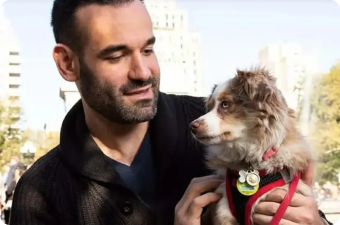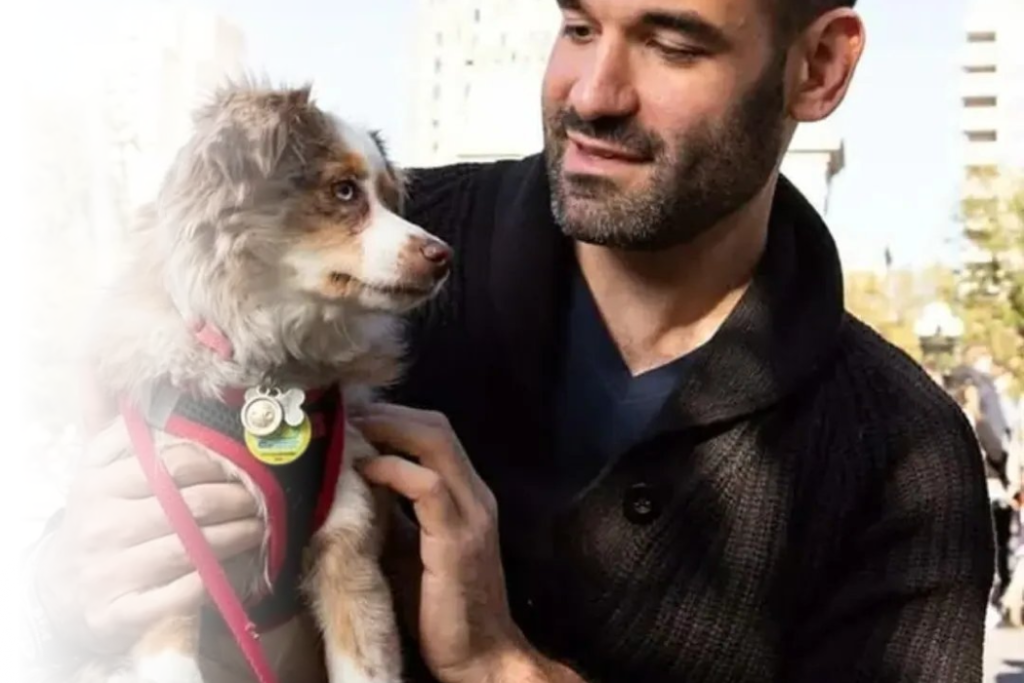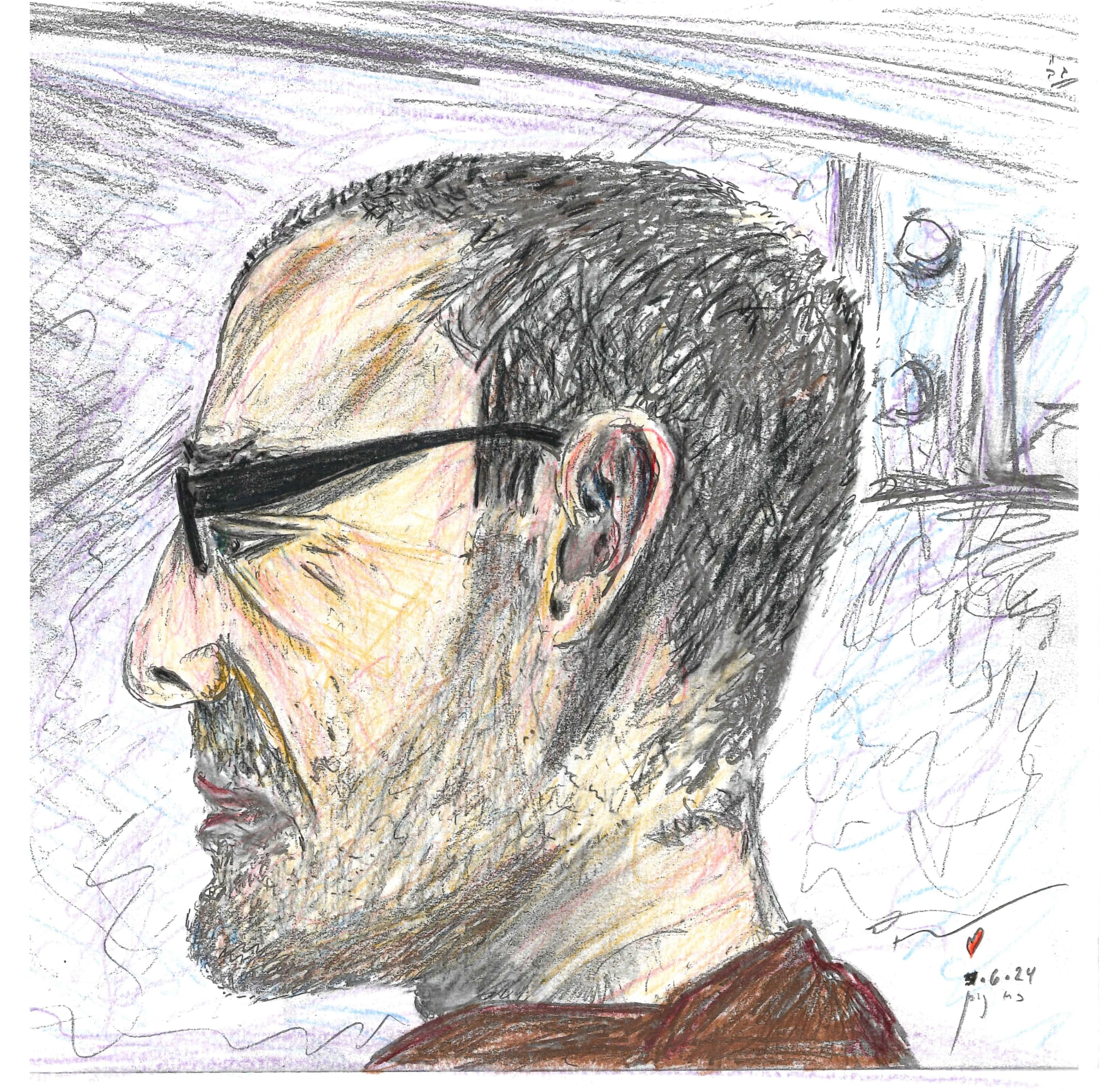Shavua Tov.
This was a laid-back Shabbat with some nice highlights.
“Bek” (Dennis Gogel), the German soldier who discovered he’s Jewish in prison, attended Friday night services and got his first Aliyah to the Torah (being called up to the Torah) this morning. I was leining (reading the Torah), and it was super nice to have him up there, looking into the Torah scroll. He was very excited to wear the Talit (prayer shawl), to say the prayers, and took a bunch of books from the Jewish bookshelf to learn more about services, holidays, and Jewish ideas.
We sat next to each other throughout the services and he was full of questions. He was excited to learn there was a Transliterated Siddur (ArtScroll), but also shocked by the speed the Shliach Tzibur (guy leading the services) went through the Hebrew (we have limited time before lockdown so we’ve got to move faster than usual).
It’s nice to see Judaism from fresh eyes. Sometimes someone asks a question that you just take for granted.
Sometimes in explaining something you do every day or week, you remember why it’s so special.
Even the new Chaplain, a Christian Pastor — great guy — was asking some questions about Teffilin, because someone at the camp was asking him to help get a paid, and I was able to pull out a siddur, Chumash, and “Jewish Literacy” by Rabbi Telushkin and explain them. He asked questions about the different sects of Judaism, etc. It is a delight to speak with folks genuinely interested in understanding Judaism and in G-d. He took a semester of Hebrew in seminary but didn’t remember much of it, so we chatted about the root letters and grammar and I showed him some basics in the Shema, how the same root shows up over and over, so if you understand some basic grammar, you can translate with a limited vocabulary.
At dinner I asked the CO guarding the door if he was Jewish, as his name sounded. He seemed to hesitate (it’s not always safe to be Jewish in some places) and then said Yes. “Cool. Shabbat Shalom,” I said. His whole face smiled, “And back to you!” Maybe he’ll join the guys here for the Chanukah Menorah lighting. Also a very nice guy.
Growing up Jewish, things become “routine”. Prison helps you see them from new perspectives, your own and others’.
Rav Soleveitchic in his essay “Lonely Man of Faith” highlighted a concern that Jews would become obsessed with the checkbox-nature of religion, the rules and rituals, and forget the spiritual purpose, to keep us connected to G-d and to help us strengthen that connection continually. The rules are not there just for their own sake.
In Prison you meet men of all types, incarcerated and employed, who are seeking spirituality. It is difficult to look at a sea of men in prison uniforms, to walls of barbed wire and concrete, to the myriad stories that brought each man “inside”, and not turn to G-d for answers and understanding.
I’m told there’s a joke that outside every prison are two garbage bins, one for crutches, and one for bibles. While the joke suggests that guys fake their religiousity, or their walking issues, to get access to extra services or leniencies, I don’t find that to be true.
The guys showing up to Jewish services seem genuinely interested in their faith, in connecting to God, and to finding and maintaining a purpose in life. Those who cannot read Hebrew, look intently into the English (or Spanish, or German…). They ask questions. They pull books from the shelves.
When called to the Torah, there is almost always a youthful excitement, regardless of their age.
It’s a cliche that people find G-d in prison, but it’s true. Equally true is G-d finds you.
Called to the Torah, it does not matter what the man was accused of before he got to this moment. It doesn’t matter what choices he may have made that led him to prison. In that moment, he is a fellow Jew, a child of G-d, one of us.
It’s a beautiful thing to experience. It’s been a month and half of it, and that part doesn’t get old.
This coming Shabbat we’ll read about Yaakov wresting with an angel and being re-named Israel, “because you wrestled with man and G-d and prevailed”. Yaakov, now Israel, transforms literally overnight from a man deeply afraid and concerned about his brother Esav killing him or he killing his brother (who had sworn to kill him 22 years prior for “stealing” his blessing) into a man who is fearless. Israel says he has faced G-d, “Panim el Panim”
face-to-face. The story is a perfect Chiastic Structure, worth reading inside. Yaakov changes his plans from hiding behind a mass of his family and staff, and keeping them on the other side of a river, to leading them from the front — which to this day is the way of IDF leaders — and embracing his brother with fearless love and respect. From fear to faith, from a scarcity mindset to abundance, from violence to love. Rabbi Lord Sacks explains that Yaakov realized he had “everything” he needed with G-d, and no physical power, wealth, or army was needed to protect him. With that understanding, Israel returns the blessing his father meant for Esav, of physical power and material wealth from forces of nature, to Esav.
This is the essense of Judaism, finding and wrestling mentally with the idea and ideals of G-d while interacting with the “real” world, gaining faith not through a utiopia, or physical miracles and signs, or the promise of a better world after this one, but through fighting your way to faith that G-d is with us at every moment and there is nothing to fear.
We are named Israel because we wrestle out of the most difficult moments the realization that G-d has given us everything we need.
Shavua Tov, Ari


